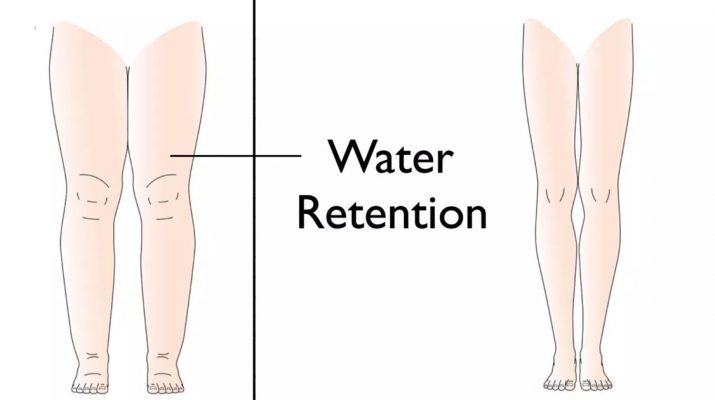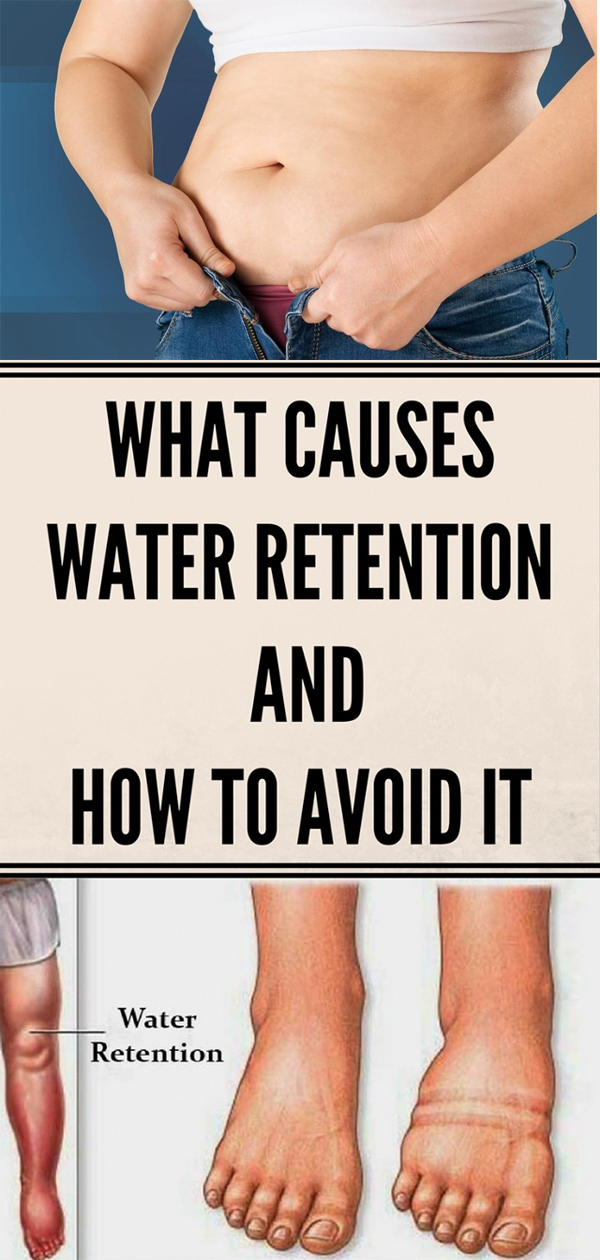Water retention, or fluid retention, is the excessive accumulation of fluids in the circulatory system, body tissues, or cavities in the body. Our body needs water in order to function normally, but they can sometimes hold too much of it, which manifests physically, with swellings.
It is not a serious health issue, but over the long-term, it can produce negative effects on the body, including cirrhosis of the liver, heart failure, kidney failure, preeclampsia, and premenstrual syndrome.
Water retention is usually a result of the following five reasons:
— Diet- A diet rich in sodium and processed foods leads to weight gain and fluid retention, so you should limit the sodium intake, and replace it with herbs and spice alternatives, like dill, pepper, cumin, garlic, ginger, oregano, onion, and sage.
— Hormones- During menopause and perimenopause, numerous women suffer from fluid retention and severe bloating. The hormones estrogen and progesterone play a significant role in it, and it might be caused by too high estrogen or too low progesterone levels. Therefore, change your diet to check if it causes the bloating, test for allergies and food intolerances, and check your hormone levels.
— Lifestyle- If you spend most of the time sitting or standing, your body tissues might retain water, so you need to boost your blood circulation. Star walking in nature, take the stairs, and exercise.
— Heart problems- People suffering from a heart condition often suffer from swellings in the abdomen and legs. Therefore it would be wise to see a doctor and check if you need to do some tests that will analyze the function of your heart.
— Medications- Medications, like antidepressants, beta-blockers, blood pressure medication, chemotherapy medication, and over-the-counter NSAIDs (non-steroidal anti-inflammatory drugs) are known to cause water retention. If you notice swellings in the body as a result of the medications you take, visit your doctor and consult him about the possibility to change your therapy.
Moreover, make sure you also increase the intake of magnesium-rich foods since this mineral effectively reduced fluid retention. One study showed that 200 mg of magnesium daily reduced water retention in women with premenstrual symptoms (PMS). These foods include green leafy vegetables, nuts, whole grains, and dark chocolate.
Vitamin B6 is a group of several related vitamins, all of which are important for the formation of red blood cells and serve numerous other functions in the body. Additionally, they reduce water retention in women with premenstrual syndrome. Foods rich in vitamin B6 include bananas, meat, potatoes, and walnuts.
Potassium is one of the vital minerals for our health, and studies have shown that water retention can be treated by optimizing its levels in the body. This is due to the fact that it lowers sodium levels and boosts urine production.
Foods rich in potassium include tomatoes, avocados, and bananas, so make sure you incorporate them into your daily diet.


